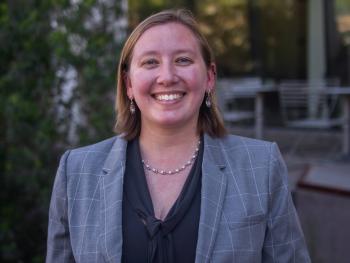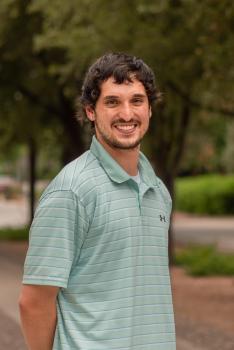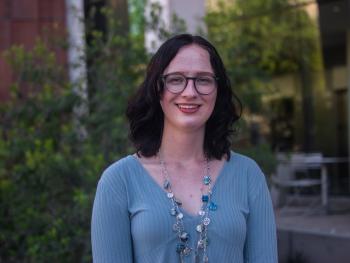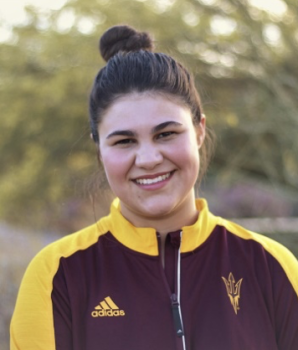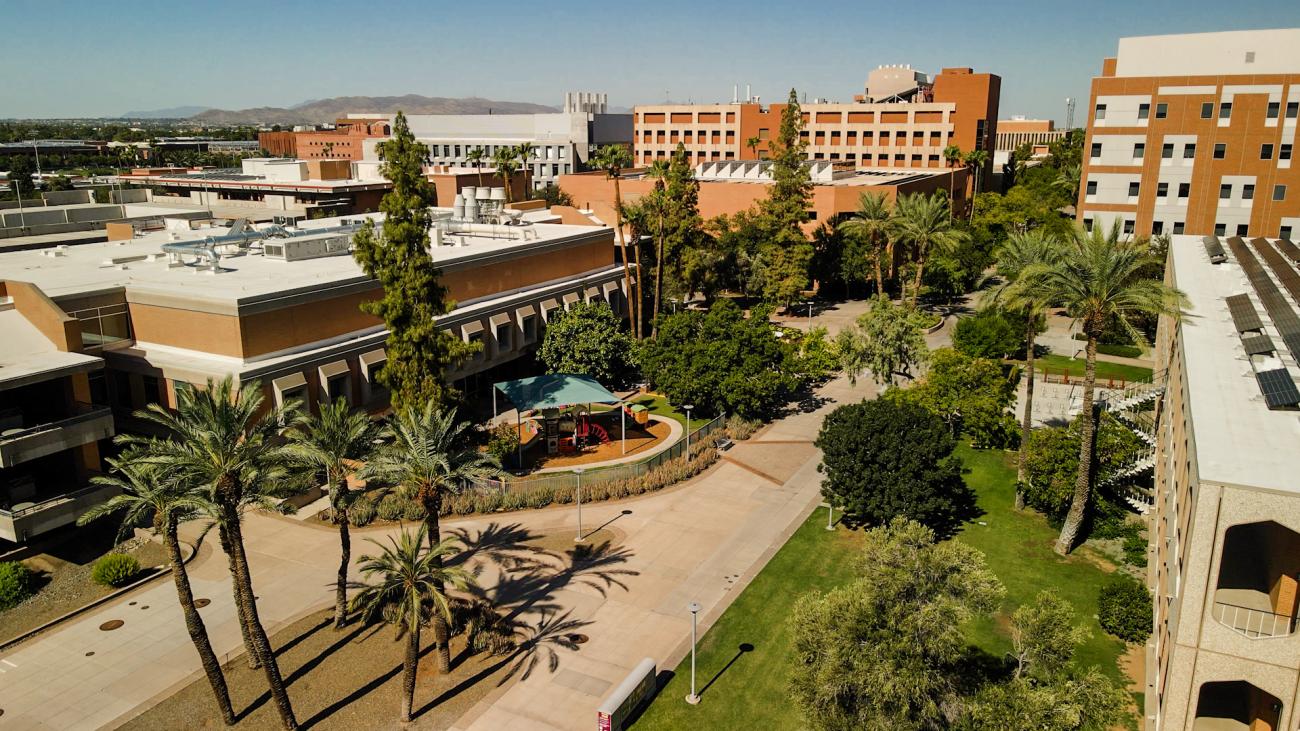
The SOCIAL Neurobiology lab (Verpeut)
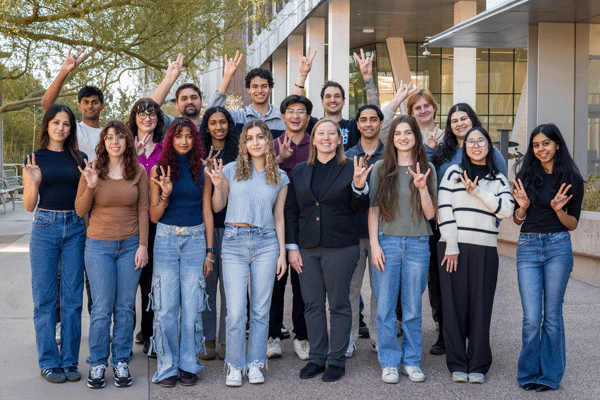
The SOCIAL (Study of Circuits in Adolescent life) Neurobiology lab, led by Dr. Verpeut, studies the development of neural circuits and structure in early life to understand behavior. The lab specifically focuses on long distance neural circuits from the cerebellar cortex involved in social and flexible behavior. We are interested in understanding sensitive periods of neural development and how circuits encode behavior throughout the lifespan. Our main goals encompass four main areas including sensitive periods of neural development, understanding natural behavior, decoding how genes and the environment influence neural maturation and aging and analyzing the effect of neuromodulators on downstream signaling pathways. To accomplish these goals, the lab utilizes viral neural manipulation techniques, immunohistochemistry, genomics, and unsupervised machine learning to understand behavior in rodent models.
Dr. Jessica Verpeut is an alumnus of Pennsylvania State University where she studied migratory behaviors and neuroendocrine signaling with Professor Paul Bartell. She received a Bachelor's degree from Penn State in 2010 with a double-major in Animal Science and Psychology. She went on to study behavioral outcomes of a ketogenic diet on neural mechanisms in Engrailed-2 mice with Nicholas T. Bello and obtained her doctorate in Endocrinology and Animal Biosciences from Rutgers University in 2015. Continuing her interests in autism and neural development, Dr. Verpeut joined the laboratory of Professor Samuel S.-H. Wang to study cerebello-cortical pathways and the cognitive cerebellum. Dr. Verpeut was awarded a New Jersey Brain Injury Research Fellowship as a Postdoctoral Researcher at Princeton Neuroscience Institute and developed reversible viral manipulations in mice to map cerebello-cortical connections that contribute to social and flexible behavior. In 2021, Dr. Verpeut joined ASU to start the SOCIAL (Study of Circuits in Adolescent life) Neurobiology laboratory. Outside of the lab, she enjoys exploring national parks with her wife, Danielle, and their dog.
Doctoral Students
Tristan Lyle, Doctoral Student. I received my BA in Psychology at the University of Northern Colorado and MS in Applied Behavior Analysis from Arizona State University in 2021. As part of my master’s journey, I was able to gain direct experience applying behavior analytic interventions to develop and grow communicative and social skills in individuals with developmental disorders (e.g., ASD). I am eager to further develop Dr. Verpeut’s research on the effects of cerebellar function during sensitive developmental periods and the signaling pathways associated with cognitive and social functions.
Olivia Law, Doctoral Student. Olivia received her Honors BA in Psychology from Idaho State University in 2022. During her time at Idaho State, she examined health and decision-making behaviors (e.g. delay discounting) in both human and rat models. Additionally, she gained experience in a personality psychology lab which focused on making personality judgments of others. For her graduate studies, she is interested in the development of mental and genetic disorders and how they affect neural circuits and structures within the brain. In her free time, she enjoys writing and playing with her cat.
Alexandria Melick, Doctoral Student. Alexandria received her Honors BS in Neurobiology, Physiology, and Behavior from Barrett, the Honors College at Arizona State in 2021. During her time at ASU, she sought to explore the biological basis of behavior and how physiological dysfunction can directly impact mental health. In her senior honors thesis, she examined the connection between malnutrition and increased mental illness prevalence in regions called food deserts, and ultimately highlighted the significance of the gut-brain axis in the relationship between the body and the brain. For her graduate studies, she is interested in the development of neurodegenerative disorders and how external variables, like food and stress, can affect the progression and severity of these disorders.
Mantra Rostami, Master's student.Mantra received her BS in Neuroscience from Arizona State University in 2024. During her undergraduate studies, she worked as a Registered Behavioral Technician, providing Applied Behavior Analysis (ABA) therapy to individuals with developmental disabilities. Her academic experiences fostered a strong interest in developmental neuroscience, particularly in understanding how genetic and environmental factors shape brain structures such as the cerebellum. For her future research, she is interested in using Down syndrome mouse models to examine the effects of maternal choline supplementation on cerebellar development. She hopes to integrate insights from both behavioral and neurobiological perspectives to better inform interventions for developmental disorders.
Undergraduate Researchers
Kendall Christiansen: Kendall is a senior at Barrett, the Honors College majoring in Genetics, Cell, and Developmental Biology on the pre-physician assistant track. She is currently working on multiple projects, including a study on sex differences in aging and her honors thesis on the cognitive, neurological, and molecular effects of Alzheimer’s disease. Outside of the lab, she enjoys teaching swim lessons, reading, and singing in the Barrett Symphonic Choir.
Aliya Hashim: Aliya is a senior at Barrett, the Honors College double majoring in Neuroscience and Pharmacology & Toxicology with a minor in Philosophy on the pre-medical track. She is currently working on her honors thesis investigating cerebellar aging and neurodegeneration in Alzheimer’s disease, focusing on microglia, myelin integrity, and extracellular matrix stability. Outside of the lab, she enjoys teaching, art, reading, traveling, visiting museums, and spending time with her cat, Darcy.
JOIN THE LAB!!
There are a variety of opportunities available in the lab:
Graduate students
Prospective students must meet the minimum qualification for Behavioral Neuroscience and Comparative Psychology Graduate Program and submit a formal application. Students with animal science, neuroscience, computational science, and biology backgrounds are highly desirable. The lab is actively searching for highly motivated, responsible, independent, and creative individuals to work with rodent models to solve big questions in neuroscience. Please contact Dr. Verpeut directly with questions or if interested in submitting an application.
Undergraduate researchers
There are various opportunities for undergraduate students in the lab and volunteers are welcome. Students studying neuroscience or computational sciences will be given highest priority. To participate, at least two semesters and a minimum of ten hours per week must be dedicated to the lab. It is expected that students are responsible, motivated, organized, and respectful. All students must adhere to proper safety procedures, maintain proper data records, and laboratory notes. It is an overarching goal of the laboratory that students from all backgrounds can engage in learning and discussion free of judgement or criticism. Please complete this application to apply as an undergraduate research assistant.
For a list of previous work, please use the following link.
- ASU News: Department of Psychology Dean’s Medalist heads to Mayo Clinic with a full-ride by Laura Fields May 2, 2025
- ASU News: Study finds cerebellum plays role in cognition — and it's different for males and females by Dolores Tropiano January 28, 2025
- STAT News: Researchers are betting on cockroaches as the cure to elitism in neuroscience by Anil Oza December 10, 2024
- ASU News: ASU students to present neuroscience, AI and aging research at largest multicultural STEM conference in the US by Kimberlee D’Ardenne October 22, 2024
- ASU News story: Lab teaches neuroscience to students from North Carolina: A brain road trip: Exploring the neural map by Rob Ewing 3/14/2022
- ASU NOW story: More than a 'little brain' by Kimberlee D’Ardenne 12/10/2020
- The SOCIAL Neurobiology lab recently opened in January 2021 and is recruiting at all levels to study the cerebellum, behavior, and development.
